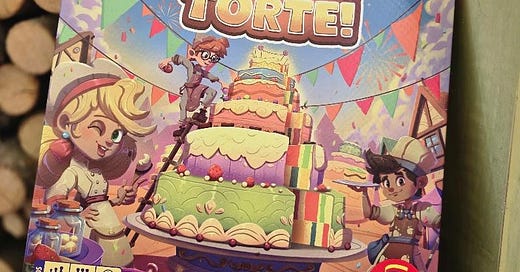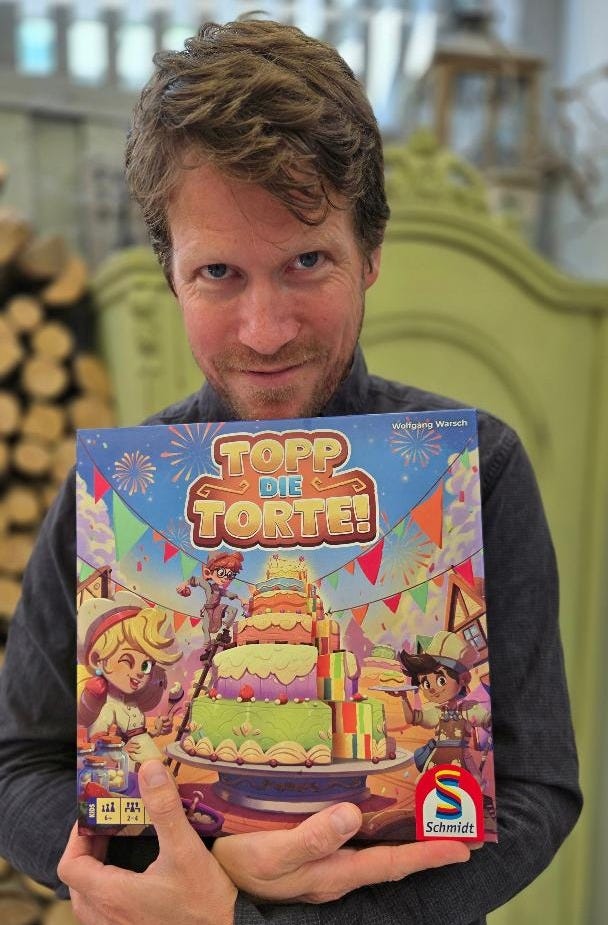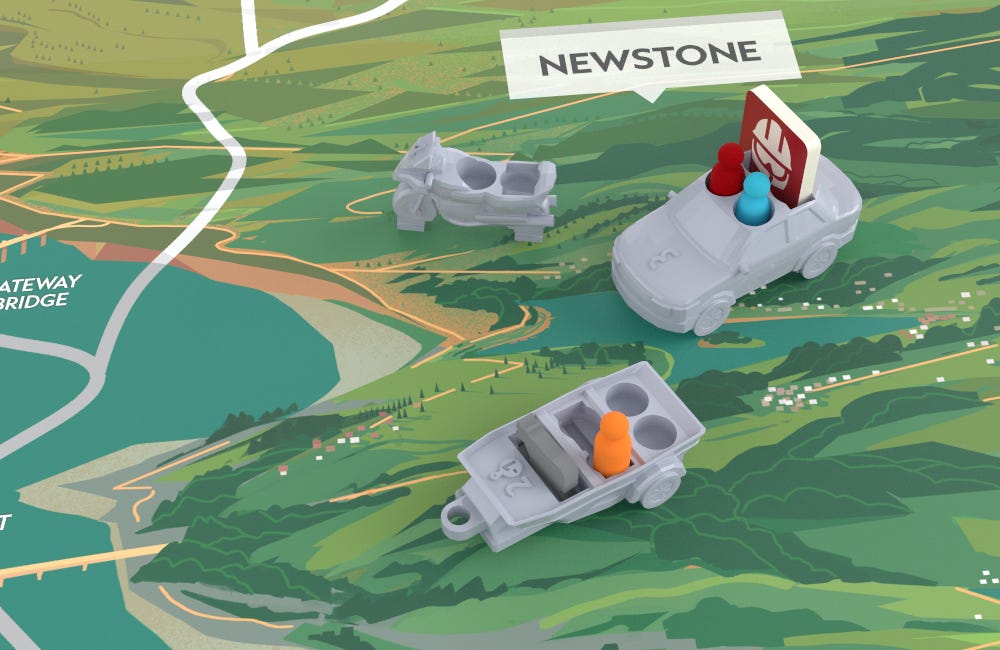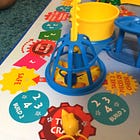Wolfgang Warsch: Topp Die Torte helps put the icing on versatile design career
We speak to the designer – and molecular biologist – about his cake-making board game's Kinderspiel Des Jahres nomination
Is there a science to board game design?
Clearly so, if Exhibit A is Wolfgang Warsch’s career and ludography.
The Austrian molecular biologist, who works in cancer research, has turned his problem-solving skills towards quite the successful side hustle in tabletop game creation – one notable for its dizzying variety of mechanics.
The deck-building The Quacks of Quedlinburg sits comfortably inside Board Game Geek’s top 100 games list, while the multiple-award-winning social deduction game Wavelength is one of the modern era’s best party games. That’s all before we get on to the co-op card game The Mind, chain-scoring family game That’s Pretty Clever! and the tactile, tower-building dexterity title The Fuzzies – among many others.
Putting the icing on the whole thing is the Kinderspiel Des Jahres (Children's Game of the Year) award nomination for Warsch’s Topp die Torte, a family-friendly creation from 2024, in which players compete in a simulated Great British Bake Off-style tournament by placing coloured tiles to complete their confectionery masterpiece, earning valuable sugar cubes that can be swapped for victory points
This latest recognition adds another feather to the designer’s cap, having previously seen his games nominated across all three Spiel Des Jahres categories.
We spoke to Warsch about Topp Die Torte, family games and his career to date.
How would you describe Topp die Torte and its mechanics?
WW: A cake-building game with a visual component. Like in a few of my other games (Shadow Master, Illusion, Great Little Gems), you have to estimate or guess certain patterns/sizes/positions of visual aspects.
How did the collaboration with Michel Verdu come about?
WW: Michel was approached by Meike Wilken (the editor of Topp die Torte from Schmidt Spiele).
Normally I am not (directly) included in the decision-making on graphic designers (as most authors). Meike suggested him and I agreed that he would be a great pick (based on his previous work).
‘When it comes to my kids games, I always try to develop it in a way that adults can play competitively against their little ones without the need to hold themselves back’
You’ve had games nominated in all three categories of the Spiel Des Jahres. What do you feel is the common thread in your games that make them successful no matter their intended audience?
WW: This is really hard to tell. In general, I always try to find a unique mechanic for the game. Finding a new and not commonly used mechanic is the most important but also most fun part for me. But this doesn’t necessarily make a game successful.
When it comes to my kids games, I always try to develop it in a way that adults can play competitively against their little ones without the need to hold themselves back. The mechanic shouldn’t favour experience and/or knowledge. And the game should be fun for adults, too.
Your games have a huge variety in their mechanics – deck building, push your luck, co-op, social deduction, word elements and dexterity and many more have been featured. Are mechanics your starting point or do you think theme first and go wherever that might take you?
WW: Yes, mechanics are always my starting point (as for most designers).
Many companies change the theme afterwards either way, so don’t get too attached to it.
What’s your favourite cake?
WW: American cheesecake!
And is it suitable to bring round the table for a board game evening?
WW: Since I don’t have board game evenings, I guess yes.
Does your background in biomedical research influence your work as a game designer?
WW: This is hard to say. I would need to take a look at my game designs after stripping away my 15 years as molecular biologist. Then I would know.
Has there been anything in the skillset that you’ve found have crossed over well?
WW: Since natural science and game development are both tasks heavily relying on logic thinking, abstract thinking, mathematical skills but also creativity as well as learning from already published data/games and implementing into new ideas, I would answer this question with a definitive YES.
Which of your games has been the most enjoyable to create?
WW: Probably every Clever game that I made – all four adults versions and both kids versions.
I like that they can easily be tested alone without having to wait another week for a test play with my weekly test group. And I enjoy the games in general.
Why do you game?
WW: I normally don’t play board games. The only exceptions are prototypes and games that I play with my kids – and here it doesn’t matter if I enjoy the game, as long as they have fun. I rather enjoy developing new games than playing published games.
What, in your opinion, is the key to creating a successful family tabletop game?
WW: If I would know this, I would develop more than just one or two new games a year. I need a certain gut feeling and when this feeling is still there after a few weeks I am convinced enough to give a proto a try.
Do you have any favourite board games you and family members enjoy playing together?
WW: Normally the newest game we have . My kids favourites are probably Karak, That's Pretty Clever! Kids (of course), Unlock! Kids, Quacks (adult and kids version; of course #2) and all 7 Wonders versions. Right now we are playing Ticket to Ride Legacy. So this is probably our favourite game right now.
In terms of game design and creation, do you have any upcoming projects that you're particularly excited about?
WW: A new version of That's Pretty Clever! Kids will come out Essen this year. And I have a new upcoming kids game that I am very excited about since it will be, mechanic-wise, completely different to my first four kids games. But it will (probably) not come out before Essen 2026.
For more information visit schmidtspiele.de
Animal Rescue Team: 'The stories are inspired by real-world rescues'
Pandemic designer Matt Leacock teams up with real-life animal rescuer Lisa Towell for upcoming co-op board game.
Family game reviews (from the perspective of a bewildered father and over-excited child)
Share The Generations Games? Ah, go on…
if you made it this far, you’re probably keen on family tabletop games, and games with a strong social theme. Forwarding to a like-minded friend can make a huge difference to the future of The Generations Games and our hopes to expand our output.









